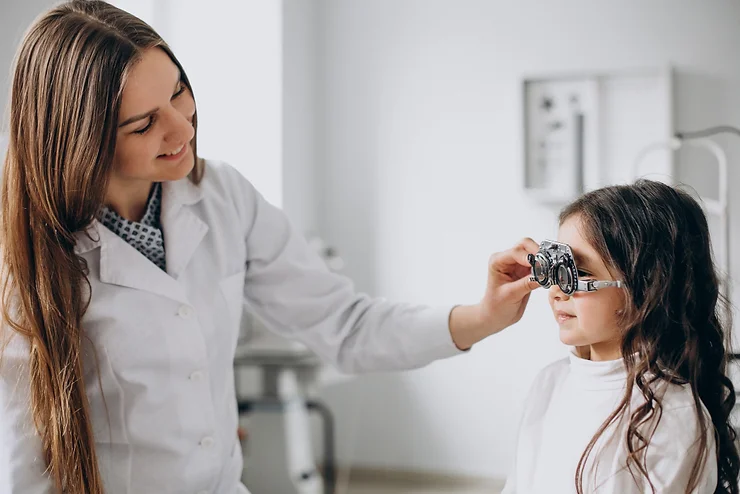
Getting regular examinations is an essential component of maintaining good health. Routine eye examinations can help detect newly developing conditions before any noticeable symptoms occur, hence preventing eyesight deterioration. In this article, we've summarized some signs that might indicate the need for an immediate eye exam.
1. High risk for eye conditions
There are several factors – some of them beyond your control – that raise your chance of developing eye illness. You should definitely have your eyes examined in following cases:
you have a personal or family history of eye conditions such as macular degeneration, glaucoma, diabetic retinopathy, or cataracts
you have previously undergone eye surgery or suffered an eye injury, or have noticed a gradual deterioration of eyesight.
you work at a computer all day
you use contact lenses
you have diabetes, which increases the risk of developing glaucoma, cataracts, or diabetic retinopathy
2. Eye problems
You definitely need an eye exam if you’ve noticed your vision is worsening. Here are signs to look out for:
Hazy, blurred, or doubled vision
Eye pain
Red or swollen eyes
Light flashes
Floaters
3. Eye pressure
Pressure in the eyes is one of the most frequently disregarded eye complaints. It is rather simple to ignore since it doesn't appear to be much of an issue. It may, however, indicate glaucoma or ocular hypertension and is definitely something to never be disregarded.
4. Headaches
Frequent headaches can be a sign of eye issues. You most probably need an eye exam if you get a pain behind your eyes and/or a headache after reading a book or watching your favourite TV series for long periods of time. Headaches related to eye problems will often go away when you rest your eyes, but it's best to get an eye exam to avoid serious illness in the future.








